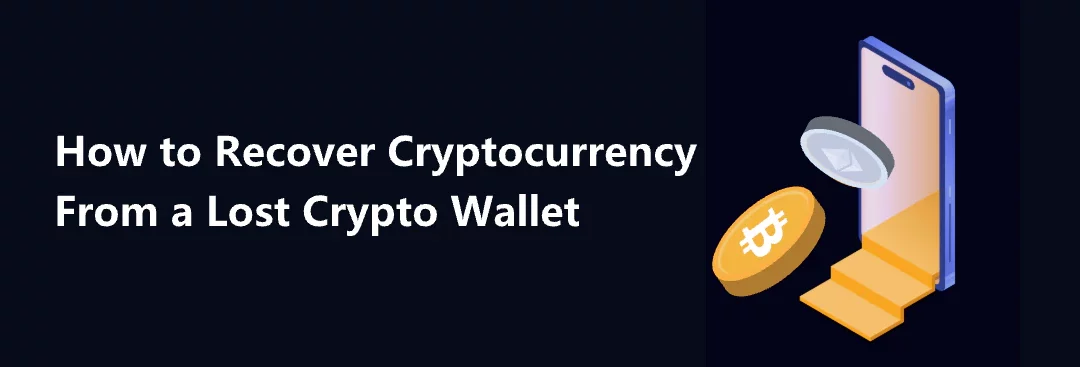What Happens If I Lose Access to My Crypto Wallet? Can I Get My Money Back?
Losing access to your crypto wallet can be a nerve-wracking experience. After all, your crypto assets are securely stored in this digital wallet, and without access to it, those assets seem to vanish. But before you panic, let’s dive into what happens when you lose access to your wallet and whether there’s any hope of getting your money back.
What is a Crypto Wallet?
A crypto wallet is a tool that allows you to store, send, and receive cryptocurrencies like Bitcoin or Ethereum. It doesn’t actually store the coins themselves, but rather the private keys that give you control over them. These private keys are crucial; without them, you can’t access your assets. A crypto wallet can come in many forms: a mobile app, a desktop application, or even a hardware wallet.
What Does Losing Access to Your Wallet Mean?
When you lose access to your crypto wallet, you’re essentially unable to access the private keys that control your digital assets. This could happen for several reasons:
- Forgetting your password or PIN for a software wallet.
- Losing or damaging your hardware wallet (like a Ledger or Trezor device).
- Losing your recovery phrase (the set of words that can help you restore your wallet).
- Malware or phishing attacks that might steal your credentials.
Without access to your private keys or recovery information, it’s nearly impossible to regain control of your wallet, as there’s no central authority like a bank to help you reset your password.
Can You Get Your Money Back?
The short answer is: It depends.
Backup and Recovery Phrases
If you’ve taken the right steps and backed up your recovery phrase (also called a seed phrase), then you’re in luck! The recovery phrase is your safety net. This set of 12 to 24 words is your key to regaining access to your wallet. By entering it into the wallet recovery process, you can recover your funds on another device or app. That’s why it’s incredibly important to store your recovery phrase in a secure, offline location, like a safe.
No Backup, No Access
If you didn’t back up your recovery phrase and have lost access to your wallet, unfortunately, there’s no way to recover your funds. This is one of the key risks of holding crypto. Since blockchain networks are decentralized, there’s no customer service team you can call, and no centralized entity has a backup of your keys.
Some Wallets Offer Recovery Solutions
Some crypto wallets have built-in solutions for wallet recovery in case of loss. For example, certain mobile wallets may allow you to recover access with an email account or by using multi-signature authentication. But even in these cases, if you’ve lost access to the main recovery mechanism (like your phone or backup device), your options may be limited.
The Role of Third-Party Services
Some users choose to store their crypto with exchanges or custodial wallets, which do provide more security and recovery options. However, even here, the recovery options are often limited and depend on the service provider’s security features. But when you’re dealing with decentralized, non-custodial wallets (which most crypto users prefer for security reasons), you’re on your own if you lose access.
Tips to Avoid Losing Your Wallet Access
Create a Backup
Always write down your recovery phrase and store it in a safe place. Avoid digital backups like photos or cloud storage, as they could be hacked or compromised. Use a fireproof safe or split the backup into multiple secure locations.
Enable Two-Factor Authentication (2FA)
If your wallet offers it, enable two-factor authentication (2FA). This extra layer of protection can make it more difficult for attackers to gain access to your wallet, even if they have your password.
Use Hardware Wallets
For long-term storage, consider using a hardware wallet. These devices store your private keys offline, making it harder for hackers to access your funds. Just be sure to back up the device’s recovery phrase properly.
Stay Alert for Scams
Be cautious about phishing attempts and malware that could lead to the loss of your wallet’s private keys. Always ensure that you’re downloading software from trusted sources and double-check email addresses or links you receive.
Conclusion
Losing access to your crypto wallet can feel like a financial disaster, but whether you can recover your funds depends on your preparation. If you’ve secured your recovery phrase or used a custodial wallet with backup options, there’s hope. If not, unfortunately, there’s not much that can be done.
The key takeaway? Always back up your wallet’s recovery information and take the necessary precautions to ensure you don’t lose access to your funds. After all, in the world of crypto, self-custody means self-responsibility. Stay safe and take proactive steps to protect your digital assets.

